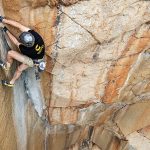Overall occupancy at mountain resort destinations still lags behind last year, according to the most recent report released by the Mountain Travel Research Program (MTRiP) and based on reservation activity as of Dec. 31, 2009.*
Lodging reservations taken in December for arrival in the next six months were up 1.4 percent, the third consecutive month with an increase in reservations, but declined sharply from the booking pace in October and November.
“While early season bookings in late summer and early fall 2009 lagged behind the previous year, strong reservation activity reported by mountain resorts in October and November indicated we would soon ‘clear the low bar’ that was set by last year’s disappointing results,” reported Ralf Garrison, director of MTRiP. “But there was a dramatic slowing in reservations taken in December 2009 leaving overall occupancy off, and average rates off further” he added
Although occupancy rates are stronger than they were 30 days ago, the overall mountain resort industry remains behind the 2008-09 season-which was one of the weakest seasons for mountain reservations in nearly a decade. Year-over-year occupancy for December was down 3.7 percent at the end of November but increased to down only 2.3 percent by the end of December. Actual occupancy for the month was 40.3 percent compared to 41.2 percent in December of 2008.
The report highlighted several economic indicators that have failed to confirm an economic recovery, or spark consumer’s vacation and travel spending. The Dow Jones Industrial Average (DJIA) dropped 0.42 percent, the first decrease since May 2009, while the Consumer Confidence Index (CCI) increased 4.5 percent to 52.9. However, persistent pessimism about unemployment and income stability keep the Index from moving upward at a steady pace with the figures edging slightly up five of the past nine months and down four of those months.
“The Dow is much higher and more stable than it was a year ago and as a well-recognized economic indicator, consumers find that stability and consistency comforting,” said Tom Foley, an MTRiP research analyst. He also noted that retail spending was down 0.3 percent in December, “partly because goods were not as deeply discounted as last year.”
On a positive note, advanced reservations for the next two months are relatively strong and slightly ahead of 2009; January is up one percent and February is up 0.1 percent but overall occupancy for the next six months is down 5.4 percent compared to one year ago.
“We aren’t seeing any significant increase in demand for vacations from last year except when low price or special promotions and events are added to the mix,” observed Garrison. “Last year at this time many resorts got a late bump in reservations by targeting local and regional markets with compelling rates and packages to draw visitors with pricing incentives and the excellent snow conditions. But this year, neither element is as prominent and local skiers and riders who filled in the resorts last season aren’t as motivated to hit the slopes as last year. Their behavior seems to be saying ‘we’re just not that into you.’ We expect that attractive deals and good snow will be required to move the needle, and those special offers will be good news for skiers and boarders as this buyers market continues,” he concluded.













